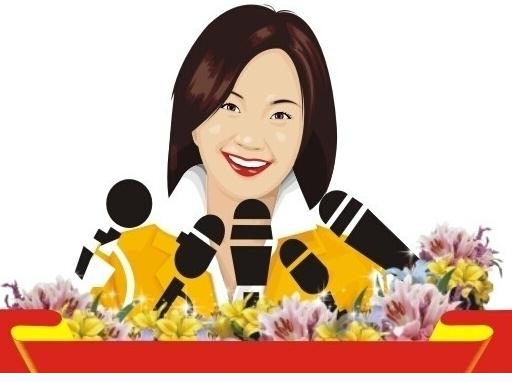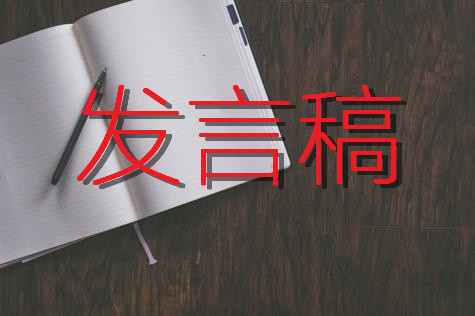百炼成神小说【好书是怎样炼成的】
时间:2020-02-23 07:16:52 来源:雅意学习网 本文已影响 人 
我曾以为,一个至高的平台、一个奇妙的观点和一个劲爆的书名就能成就一本惊世之作。然而,当我将这三点奉为创作的法宝,试图将我的奇思妙想炼制成一本好书时,却发现:纷乱的奇思妙想抵不过实践的检验,空洞的思想熔炉炼不出好的作品……
When I was young I wanted to write a challenging book of ideas. I had in mind the kind of “deep” book that public intellectuals of the 1950s and 1960s wrote: The Lonely Crowd2), The One-Dimensional Man3), The End of Ideology4). Intellectuals talked seriously about them in magical places like New York and San Francisco, places I knew nothing about. Unfortunately, I didn’t really have anything deep to say. So I did what most intellectually ambitious young Americans do. I went to graduate school. I found nothing deep to say there. Instead, I learned to do research and write clearly. In the years that followed, I wrote books, but not deep books of ideas. My books were focused, well-documented demonstrations of some minor fact about the world. They added to what we know. That’s something.
Yet I still hungered to write a book of ideas. I knew I wouldn’t ever do so in academia. So after about a decade of teaching at a big university, I left to work in a staff position at a big magazine. In my mind, this magazine stood at the pinnacle5) of American intellectual life.
In 2005, Wikipedia was taking off. I thought its history might be interesting. So I wrote a piece on spec6) about the founding of Wikipedia. The editors at the big magazine liked it, and they published it in 2006. Around the time my Wikipedia article appeared in the big magazine, another Wikipedia piece appeared in another big magazine. Wikipedia was suddenly, as Tina Brown7) says, “v. hot.” This was my chance to write a book of ideas―not that8) I had any good ideas to write about. I sent an e-mail to a literary agent picked at random, asking whether I could write a book about Wikipedia-style collaboration on the Internet. I got a call within minutes. The nice fellow at the other end of the line said he’d read my article. I could get a book deal with a big New York trade publisher.
This is what I had to do. First, I needed to have a platform. A platform is something you stand on. It makes you taller than you are. In trade publishing, a platform is the same, but it’s a prestigious brand. I had two: from a trade editor’s point of view, I had been a “professor” at the big university and a “writer” at the big magazine. Second, I needed a big idea. A big idea is an enthusiastically stated thesis, usually taking the form of “This changes everything and will make you rich, happy, and beautiful.” A big idea must be counterintuitive9): the this that changes everything must be something everyone thinks is trivial, but in fact matters a great deal. In my case, the this had to be Wikipedia, so my big idea was “Wikipedia changes everything.” Third, I needed a catchphrase title like The Wisdom of Crowds10), The Tipping Point11), or The Long Tail12). The title had to be the kind of thing that becomes a cliché. And in fact a trade editor suggested a good title―WikiWorld.
My agent is not a cynical man. He never suggested that I misrepresent myself or commit to anything I couldn’t accomplish. He was simply doing his job, explaining to me how this particular game is played. He is also very good at what he does. So when the bidding ended, a New York trade publisher showed us a large number. I should point out that in actuality I had no book. All I had was a shaky platform, a supposedly big idea, and a catchy title. Yet there it was, the big number.
My editor at the New York publisher proclaimed that my book would be important. This was Wikipedia’s moment. My book would capture it. But what was the book going to be about? We weren’t sure. Something to do with mass collaboration and how it changes everything. I’d work it out. There was only one sticking point13), a sticking point that almost tipped me over14): he wanted the book in six months. I said that was impossible. He told me to do the best I could. I thought of that large number and agreed to try.
I started doing research. This was revealing, as research should be. It forced me to scotch15) the idea that “Wikipedia changes everything,” because it obviously didn’t. The truth about Wikipedia was messy. I couldn’t boil it down16) to catchphrases and anecdotes17). So I did my best to reduce the inherent complexity of the subject, and submitted the manuscript. Was it good? Well, the book did the job as I understood it. Was it done18)? Yes, and that was important. But I was worried. I had strayed from the big-idea template. My book was a convoluted19) story involving evolution, human nature, media technologies, and their effects on human society and thought. Surprisingly, my editor liked it a lot. He compared me to Jared Diamond20). My agent told me that this was the best possible news: Diamond’s books sold like hotcakes.
Then my editor fell ominously21) silent. E-mails went unanswered, phone calls unreturned. What had happened? My agent explained that my big idea―which in fact was no longer my big idea―had a short shelf life22). That’s why my editor had wanted the book in six months. Other Wikipedia books were in the pipeline. Some of their authors had higher platforms, bigger ideas, and pithier titles than mine. The clock was ticking. After six months, my editor finally wrote me. Not surprisingly, he no longer liked my book. Too complicated for the average trade reader. He advised me to speculate. “Unleash your inner Marshall McLuhan23),” he said, and rewrite the book.
This was excellent advice from a smart man with decades of experience in trade publishing. But I realized that I had no inner Marshall McLuhan. Even more important was my realization that I had no inner James Surowiecki, Malcolm Gladwell, or Chris Anderson. From my editor’s perspective, these were models, and rightly so. They made trade publishers a fortune. From my perspective, however, they were good writers who had spun big ideas into gold. I couldn’t write a big-idea book, because, as it turned out, I didn’t believe in big ideas. By my lights24), they almost had to be wrong. Years of academic research taught me two things. First, reality is as complicated as it is, not as complicated as we want it to be. Some phenomena have an irreducible complexity that will defeat any big-idea effort at simplification. Second, most of the easy big questions about the way the world works have been answered. The questions that remain are really hard. Big ideas, then, can only reinvent the wheel or make magical claims.
So I forgot about big ideas and did what I was trained to do. I conducted research. I let the facts be my guide. My book contained no down-from-the-mountain revelations. Its conclusions would not make anyone rich, happy, and beautiful. Its rewards were unashamedly intellectual, and moreover not that easily achieved. It was a difficult book. I submitted it to my editor, hoping that he would accept it.
Of course he couldn’t. Wikipedia’s moment had passed, and my big idea had vanished. He killed the book, and the big number disappeared. I don’t blame him. He was just doing his job. I was the one, after all, who had not followed through on a promise. I said I would write a big-idea book, but I had instead written a book of ideas.
年轻时我就满怀理想,要写出一本具有挑战性的、充满真知灼见的好书。我满脑子想的是20世纪五六十年代公共知识分子所写出的那种“高深莫测”的图书:《孤独的人群》、《单向度的人》、《意识形态的终结》等。知识分子们郑重其事地谈论着这些书籍,他们聚集在像纽约和旧金山这样充满魔力的地方,而我当时对这些地方还一无所知呢。遗憾的是,我并没有什么深刻的话语好说。于是,我就和大多数在知识上追求进步的美国年轻人一样,上了研究生。可是,在研究生院,我还是没有找到什么深刻的话语好说。相反,我学会了做研究,学会了怎样写出条理清晰的文章。在此后的若干年里,我写了几本书,但并不是充满深奥思想的那种。我的书都是对现实世界某些微观事实的展示,中心明确,引文、出处全都罗列得一清二楚。这种书可以增加人们的知识。这也很了不起。
然而,我仍然念念不忘要写一本充满真知灼见的书。我知道在学术界我永远也无法实现这一梦想。于是,在一所名牌大学教了近十年书之后,我辞职来到一家大名鼎鼎的杂志社工作。在我心目中,这家杂志代表着美国知识界的顶尖水平。
2005年,维基百科开始腾飞。我想人们也许会对它的历史感兴趣,于是便抱着试试看的态度写了一篇关于维基百科创办经历的文章。这家大牌杂志的编辑很喜欢,并在2006年发表了这篇文章。就在我这篇关于维基百科的文章在这家大牌杂志上发表之时,另一篇关于维基百科的文章也在另一家大牌杂志上发表。一时之间,维基百科突然变得――用蒂娜・布朗的话来说――“非常火爆”。这可正是我写一本充满真知灼见之书的大好时机啊――虽然我并没有什么真知灼见好写。我随便找了一位作家代理人,给他发了一封电子邮件,询问我是否可以写一本关于维基百科式的互联网合作的书。几分钟之后我就接到了他的电话。在电话线的另一端,这位好心人告诉我说他已经读过我的文章。我可以和纽约一家大牌商业出版社签订图书出版合同。
我需要做的事如下。首先,我需要有一个平台。所谓平台,就是一个可以立足的地方,它使你显得更加高大。商业出版界的平台也不例外,但这里的平台是一个名声显赫的品牌。这样的品牌我有两个:从商业编辑的角度来看,我曾是一所名牌大学的“教授”,又是一家大牌杂志社的“作者”。其次,我需要一个奇妙的观点。一个奇妙的观点就是一个写得激情澎湃的主题,其常见形式是“它能改变一切,将会让你变得富裕、幸福和美丽。”一个奇妙的观点必须是违反直觉的:这个改变了一切的东西必须是人人都认为无关紧要但实际上又十分重要的东西。就我的情况而言,这个东西必须是维基百科,因此我的奇妙观点就是“维基百科改变了一切”。第三,我需要一个吸引眼球的书名,诸如《群体智慧》、《引爆流行》、《长尾》之类的。这个书名必须是某个人们经常挂在嘴边的词语。事实上,一位商业编辑给我建议了一个好名字――《维基世界》。
我的代理并不是一个愤世嫉俗的人。他从不建议我做违心之事,或者做明知不可为之事。他只是尽自己的职责,告诉我这个行业的游戏规则。他的工作做得也很出色,投标结束时,纽约的一家商业出版社出了一笔很大的数目。应该说明的是,事实上我还没有什么书。我所拥有的只是一个摇摇晃晃的平台、一个号称奇妙的观点,还有一个花哨引人的书名。可就是这样,竟然得到了那么一大笔数目。
纽约那家出版社的编辑宣称我的这本书十分重要。这是维基百科的时代。我的书将抓住这个契机。但这本书到底要怎么写呢?我们谁也不清楚。只知道要写群体合作以及这种合作如何改变了一切。这需要我来挖掘。但只有一点比较棘手,这一点几乎把我难倒:他要我六个月交出书稿。我说这不可能。他要我尽力而为。看在那笔不菲的数目的分上,我答应试一试。
我开始作研究。结果收获还真不小,这也正是研究的意义所在。研究的结果让我不得不放弃“维基百科改变一切”的观点,因为它显然做不到。关于维基百科的事实比较混乱,我无法将其浓缩成一个个闪光的句子和奇闻轶事。于是我使出浑身解数来简化这个本质上十分复杂的话题,并将手稿交了上去。写得够好吗?可以说,这本书已按照我的理解完成了自己的使命。写得够潮吗?是的,这一点很重要。但我却很担心,因为我偏离了原定的奇妙观点的模板。我的书讲述的是一个盘根错节的复杂故事,涉及进化、人性、媒体技术及其对人类社会和思想的影响。出乎意料的是,我的编辑非常喜欢。他拿我和杰瑞德・戴梦德相比。我的代理告诉我说,这也许是最好的消息了:戴梦德的书卖得火着呢。
可随后我的编辑就杳无音信了,这让我隐隐有一种不祥之感。电子邮件没有回复,电话没人接听。到底出了什么事?代理解释说,我的奇妙观点――事实上已经不再是我的奇妙观点――货架期太短。这也是我的编辑要求我六个月交稿的原因。其他和维基百科相关的书也正待出炉。这些作者有的比我的平台更高,观点更奇妙,书名更言简意赅。时间一点一滴地过去。六个月之后,我的编辑终于有了音信。不出所料,他已不再喜欢我的书。对普通商业读者来说这本书太过复杂。他要我再好好想一想。他说,“把你内心深处的马歇尔・麦克卢汉释放出来”,重写这本书。
这是一位有着几十年商业出版经验的聪明人给我提的宝贵建议。可是我却发现我的内心没有马歇尔・麦克卢汉。更为关键的是,我还发现我也没有什么内在的詹姆斯・索罗维基(注:《群体智慧》的作者)、马尔科姆・格拉德威尔(注:《引爆流行》的作者)或者克里斯・安德森(注:《长尾》的作者)。在我的编辑看来,这些都是我的榜样,事实上也的确如此。他们为商业出版商带来了丰厚的利润。可是,从我自己的角度来看,他们都是很优秀的作家,善于将绝妙的观点变成黄灿灿的金子。我无法写出这种具有奇妙观点的书,因为我研究的结果证明,我已不再相信什么奇妙观点。就我看来,它们几乎注定是错误的。多年的学术研究经验教会了我两件事。其一,现实从本质上来说就是复杂的,而不是我们想让它怎么复杂就怎么复杂。有些现象就包含着无可简化的复杂性,任何试图将其简化成某种奇思妙想的努力都会以失败而告终。其二,关于世界运行规律的大多数容易回答的大问题都已经有了答案。那些没有答案的问题确实都是很难回答的问题。因此,所谓的真知灼见,要么是再发明一次车轮,要么就是提出魔法般的神奇论断。
因此,我将奇思妙想扔到一边,踏踏实实地做我受的教育教会我的事。我开始作研究。我让事实成为我的向导。我的书中没有揭秘什么惊天大内幕,得出的结论也不会使人变得富裕、幸福和美丽。但我可以毫不羞愧地说,它给读者带来的报酬是智力上的,而且这种好处确实是来之不易的。这是一本难读的书。我把它交给了编辑,希望他能够接受。
当然他无法接受。维基百科的好时光已经过去,我的奇思妙想也已不见踪影。他枪毙了这本书,那笔可观的数目也随之消失了。我并不责怪他。他只是履行自己的职责而已。毕竟,是我自己没有信守承诺。我说我要写一本具有奇妙观点的书,结果却写出了一本融汇各种见解的书。
1. meme weaver:一种比喻的说法,将作家等文化工作者比作文化基因的编织者、创造者。meme:(通过模仿等传递的)文化基因
2. The Lonely Crowd:《孤独的人群》,美国社会学家大卫・理斯曼在同事的协助下完成的一部经典学术著作。该书的主旨是探讨美国人社会性格的形成及演变,被誉为“当代最有影响的著作之一”。
3. The One-Dimensional Man:《单向度的人》,德裔美籍哲学家和社会理论家赫伯特・马尔库塞最负盛名的著作,其核心就是批判发达资本主义社会的意识形态。该书在20世纪60年代为马尔库塞赢得了世界性的声誉,他被媒体称颂为“新左派之父”,成为美国和欧洲最有影响的知识分子。
4. The End of Ideology:《意识形态的终结》,当代美国学者丹尼尔・贝尔的著作。该书的核心观点认为,发端于19世纪人道主义传统的普遍性意识形态已经走向衰落,新的地区性意识形态正在兴起,在资本主义和社会主义之间存在的“左”“右”论战已经丧失意义。
5. pinnacle [ˈpɪnək(ə)l] n. 顶点,最高点
6. on spec:(=on speculation)碰运气地
7. Tina Brown:蒂娜・布朗(1953~),美国媒体界传奇人物,现任新闻网站《每日野兽网》(The Daily Beast)和杂志《新闻周刊》(Newsweek)总编,曾任《名利场》(Vanity Fair) 、《闲谈》(Tatler)、《纽约客》(The New Yorkers)等杂志总编。
8. not that:倒不是
9. counterintuitive [ˌkaʊnt(ə)rɪnˈtjuːɪtɪv] adj. 违反直觉的
10. The Wisdom of Crowds:《群体智慧》,《纽约客》专栏作家詹姆斯・索罗维基(James Surowiecki)的著作,于2004年出版。该书的核心观点为,群体做出的决策有时会优于个人的决策。
11. The Tipping Point:《引爆流行》,《纽约客》专栏作家马尔科姆・格拉德威尔(Malcolm Gladwell)的著作,于2000年出版。该书以社会上突如其来的流行风潮研究为切入点,从一个全新的角度探索了控制科学和营销模式。
12. The Long Tail:《长尾》,美国《连线》(Wired)杂志主编克里斯・安德森(Chris Anderson)的著作,于2006年出版。该书的主要观点认为,商业和文化的未来不在于传统需求曲线上那个代表“畅销商品”的头部,而是那条代表“冷门商品”的经常被人遗忘的长尾。
13. sticking point:症结(造成或可能造成僵局的要点、问题或形势)
14. tip over:(使)翻倒,(使)倾翻
15. scotch [skɒtʃ] vt. 打消,撤销
16. boil down:浓缩,简化
17. anecdote [ˈænɪkˌdəʊt] n. 轶事,奇闻
18. done [dʌn] adj. 时髦的,流行的
19. convoluted [ˈkɒnvəˌluːtɪd] adj. 错综复杂的
20. Jared Diamond:杰瑞德・戴梦德(1937~),美国科学家,畅销书作家,现任美国加州大学洛杉矶分校(UCLA)教授。
21. ominously [ˈɒmɪnəsli] adv. 恶兆地,不吉利地
22. shelf life:货架期,保存期限
23. Marshall McLuhan:马歇尔・麦克卢汉(1911~1980),20世纪传播学大师,最富有原创性的传播学理论家,媒介环境学的开山祖师
24. by one’s lights:根据某人的理解
推荐访问:好书 是怎样炼成 好书是怎样炼成的 钢铁是怎样炼成推荐语 钢铁是怎样炼成的摘抄










